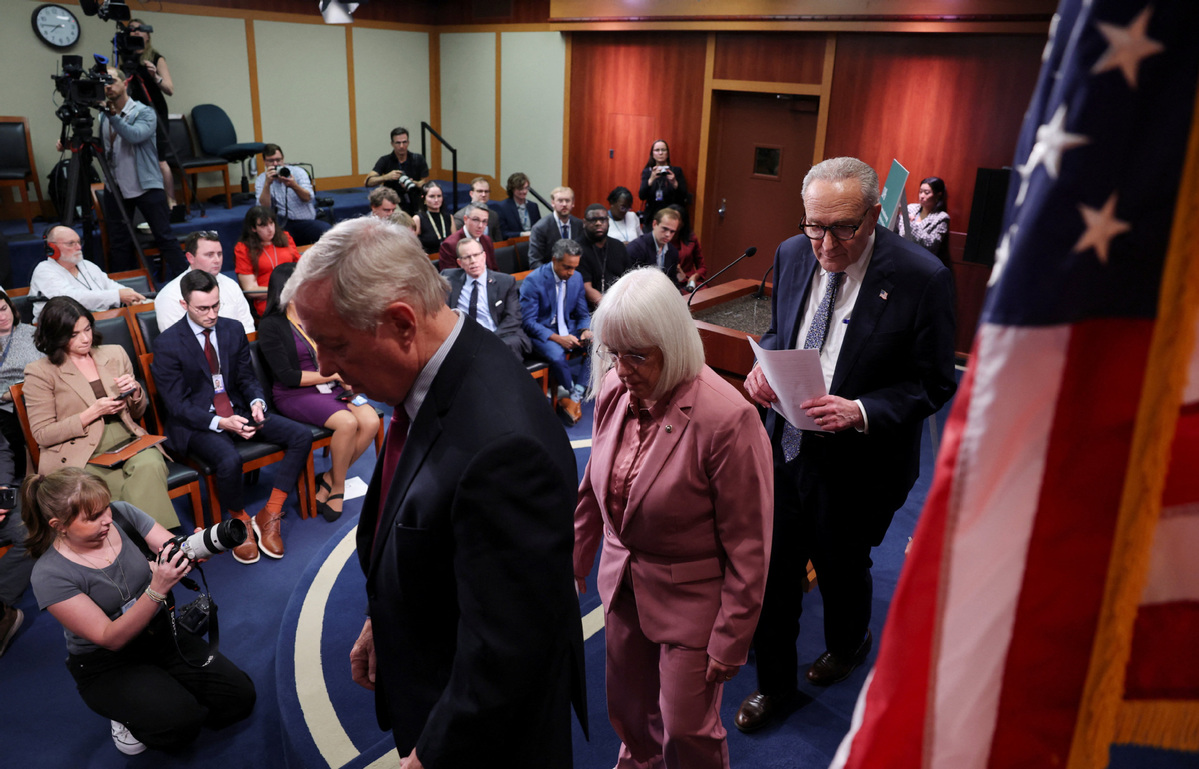US govt veering toward shutdown


Little progress had been made in discussions between Republicans and Democrats on Tuesday evening as the US government veered toward a deadline to prevent a shutdown.
"I think we're headed to a shutdown," Vice-President J.D. Vance said after a meeting at the White House.
Senate Minority Leader Chuck Schumer said there still were large differences between the sides — Democrats want an expansion of healthcare subsidies while Republicans want to maintain current levels.
If Congress was unable to reach an agreement on funding, a government shutdown was set to begin at 12 am on Wednesday.
"Republicans have until midnight tonight to get serious with us," Schumer said on Tuesday. "But they're lying because they know they're screwed if this debate turns into one about healthcare. And guess what? That's just what we're doing. We are making this debate a debate on healthcare."
Republican Senate Majority Leader John Thune hoped an agreement on government funding could be reached.
"Democrats may have chosen to shut down the government tonight, but we can reopen it tomorrow," Thune said.
"All it takes is a handful of Democrats to join Republicans to pass the clean, nonpartisan funding bill that's in front of us," said Thune.
During a shutdown, services deemed "essential", such as Medicaid, Medicare, Social Security benefits, the postal service and air-traffic control would not be affected. "Non-essential" services, such as parks, closed during previous shutdowns. Government reporting services, the IRS and the courts may eventually be affected once their departments run out of money.
Hundreds of thousands of federal government workers could be off work.
"In the event of a federal government shutdown, federal employees may be eligible for Unemployment Compensation for Federal Employees," read a statement from the US Office of Personnel Management.
However, some of the workers deemed essential and still working, may be on the job without pay.
President Donald Trump has threatened to permanently lay off staff if a deal wasn't reached.
The most recent government shutdown, and the longest, lasted 35 days from Dec 22, 2018 to Jan 25, 2019, during Trump's first term.
shiguang@chinadailyusa.com

































